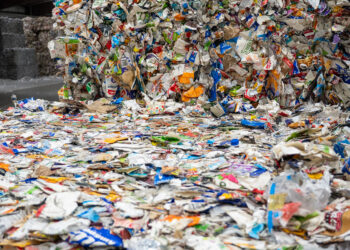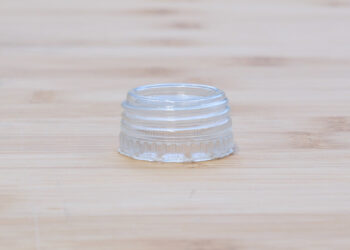At the closing general session of the 2014 ISRI Convention & Exposition, presumptive presidential candidate Hillary Rodham Clinton spoke to over 1,000 attendees about recycling and how the industry fits into the larger U.S. and global economy, but not without some controversy.
Just as Clinton began speaking, a member of the audience threw a strapped shoe and some papers at the former Secretary of State. Clinton responded with humor, saying, “My goodness, I didn’t know that solid waste management was so controversial. Thank goodness she didn’t play softball like I did.”
ISRI’s director of media relations and online communications, Mark Carpenter, told the Las Vegas Sun that the shoe-thrower was not a convention attendee and a Resource Recycling staffer at the event confirmed the woman was not wearing a badge.
Clinton spoke for 30 minutes, praising the recycling industry for “driving innovation and resource efficiency,” noting that recycling “offers a chance to improve the environment and stimulate the economy at the same time.” The former senator then highlighted various projects the Clinton Foundation has launched relating to “sustainable waste management,” including a Haitian recycling plant.
“We can be the clean energy superpower for the 21st century as American innovation unlocks new supplies, pioneers new technologies and gives us new tools to lower carbon emissions,” Clinton said.
After Clinton’s speech and shoe-dodging, she sat down with outgoing ISRI chair Jerry Simms, who offered a “deepest apology for that crude interruption.”
During the discussion with Clinton, Simms noted the recycling trade group’s strong stance in favor of exports without restrictions and history of “preventing protectionist trade policies of other nations.”
Clinton expressed support of such policies. “We have to be stronger about going after countries in the WTO, like China, now like Russia, like any others who try to put those barriers up,” Clinton said. “We have to be tougher in bringing trade action against them. We have to threaten reciprocity, because they love to get into our market while they block their markets.”




























